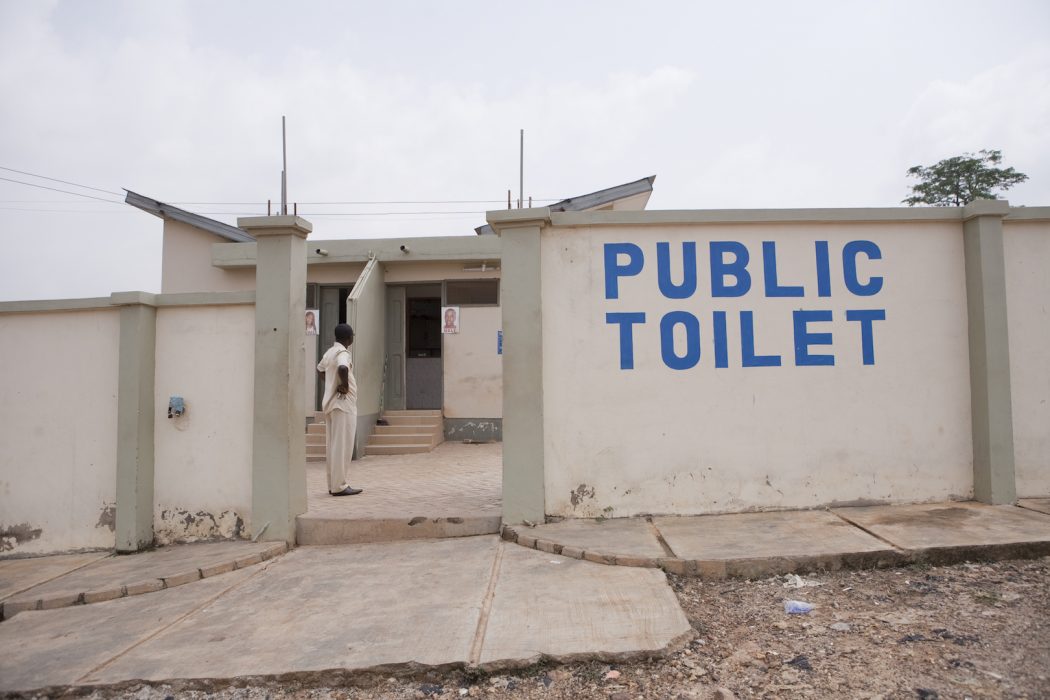By Vivian Ihechu
Growing up, Mr Babatunde Ajose, a tourism expert and resident of Marina in Badagry, said he practised open defecation because his family compound was opposite the lagoon, and using the toilet facility wasn’t so necessary.
According to him, it is a usual practice for children and teenagers to go to the marina lagoon early in the morning to defecate.
“It is like a cultural practice that people find it difficult to see anything wrong or dangerous in it.’’
Mrs Ajoke Odunlami resides on a street in Mushin, Lagos state. In front of her compound is an appendage where the occupants of the building take their baths and urinate.
The human wastewater drains directly into the open gutter on the street, where, most times, the football of children who play on the street falls into.
Unassumingly, the children would always pick their footballs from the gutter with their bare hands and continue playing.
For Apena Udoh, who runs a beer parlour, the toilet facility for her customers is constructed with a roofing sheet on top of the gutter in front of her shop.
While Mr Smart Goodwill laments that whenever it rains or in the middle of the night, some of his neighbours will drain the poop from their septic directly into the gutter.
“The smell is suffocating. If it is raining, the water just carries the thing out there.
“Disgusting,” he hisses.
Master Oluwachi Mohaette, 12, looks forward to ‘reuniting’ with his peers at the beginning of every term but dreads going back to school because of the state of the toilets.
Mohaette, who is a boarding student at a prime public school in Lagos, also alleged that the toilets in the school are inadequate, mostly broken and not functional, with the functional ones “messed up’’.
Potable water is also a challenge, making it difficult to clean the toilets after usage. This leaves the boys to urinate and defecate openly in certain areas around the school.
The narrative of the poor toilet hygiene situation in the country is inexhaustive.
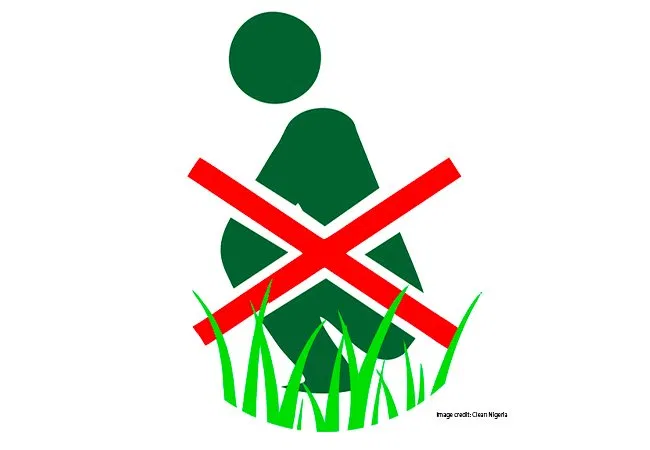
Miss Faith Torty describes how disgusting it is for her to look across the bridge and see people pass waste directly into the Lagoon as she makes her way to work every morning.
According to UNWater, Safe Toilets for All by 2030’ is one of the targets of Sustainable Development Goal 6 – but the world is seriously off track.
It says that about 3.5 billion people still live without safely managed sanitation, including 419 million who practise open defecation.
In Nigeria, the Federal Government on Sept. 12 said that the country required more than 20 million toilet facilities to combat open defecation.
To highlight the sanitation crisis that affects billions of people around the world, who are living without access to a safely managed toilet, the world annually marks World Toilet Day on Nov. 19.
The day brings attention to the lack of toilets for billions of people globally, encouraging everyone to learn and spread the word about how proper toilets and sanitation can save lives.
The theme for the 2024 WTD is “Toilets – A Place for Peace’’.
Not having accessible and safe toilets poses great health, environmental, and social challenges.
For instance, the UN-Water and United Nations Children’s Fund (UNICEF) say without clean, safe toilets and assurance of safe transport and treatment, human waste (poop) can contaminate communities’ food and water sources, which increases people’s chances of getting sick.
When people don’t have access to a toilet, they go outside in the open. This often causes the spread of diarrheal diseases, and it is estimated that each day, nearly 1,000 children around the world suffer from diarrhoea related to poor sanitation and contaminated water sources.
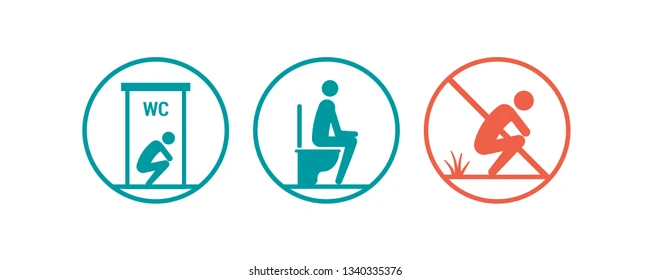
Dr Onyema Anyanwu, Physician, explains that when people urinate and defecate anywhere, it contaminates water sources, and the unsanitary conditions can spread waterborne diseases.
“These can contaminate food and put millions of people at risk. Sanitation affects health as poor sanitation lowers life expectancy. Studies have also shown that there is the probable role of open defecation in antimicrobial resistance.
“This is dangerous, threatening the efficacy of antibiotics, with the implication that `common infections could once again become deadly.’
“When people defecate outdoors, resistant bacteria from human waste can contaminate water and food. This usually results in fecal-oral diseases and urinary tract infections.’’
On why people pass human waste indiscriminately, Anyanwu notes that people resort to that because of inadequate toilets.
“They defecate in fields, bushes, or bodies of water, and this puts communities and especially children, in danger of deadly faecal-oral diseases like diarrhoea and cholera.’’
In addition, Mr Monday Johnson, a UNICEF Water, Sanitation, and Hygiene (WASH) specialist, says open defecation can lead to Neglected Tropical Diseases (NTDs).
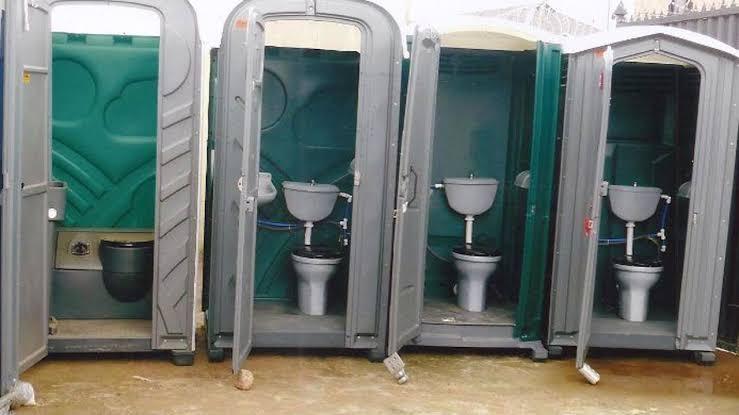
NTDs rank among the four most devastating groups of communicable diseases, causing severe pain and long-term disability and leading to death for more than 170,000 people per year.
NTDs include dengue, Guinea-worm diseases, sleeping sickness, leishmaniasis, and leprosy.
He notes that NTDs and poor access to WASH contribute to a vicious cycle of poverty and disease, adding that NTDs can lead to catastrophic health expenditure and reduced economic productivity.
Proffering solutions to improved toilet hygiene, he calls for the use of toilets that prevent exposure of faeces to the environment.
He advises people to always cultivate the habit of disposing of faeces (human and animal) in the toilet and avoid urinating in the river, lagoon, or pond, among other measures.
Revisiting laws to improve environmental sanitation, as well as sanctioning defaulters, will be good deterrents for people who do not have good toilets or practice open defecation, Jennifer Nashima, General Manager (GM) of Benue State Environmental Sanitation Agency (BENSESA), says.
The Chairman of Ikorodu Local Government, Mr Wasiu Adesina, also says reprimanding people who urinate or defecate openly has become necessary.
He says his administration will punish anyone caught indulging in the act, and consequently urges residents to adhere to the council’s sanitation rules.
On his part, Mr Lateef Rasheed, Chairman of Nigeria Bar Association (NBA) Badagry, urges the government to ensure and enforce that every house and business centre has convenient toilets.
He also says increased sensitisation of the people to the disadvantages of open defecation and the importance of toilet hygiene is imperative.
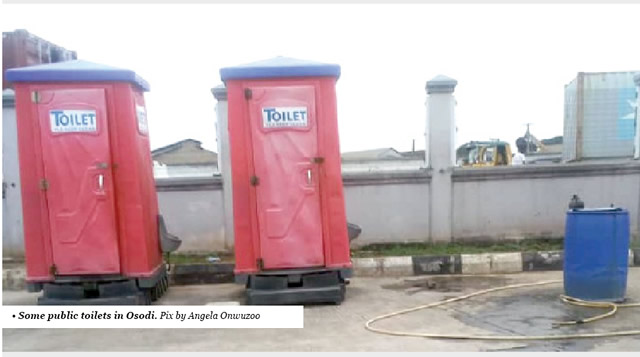
“We can put a stop to it if all houses have good toilets. How do you build a house without a toilet?’’
Mrs Rosita Agomuo, an Educationist and Executive Coordinator of Safe Mamahood, says a toilet should be a secure, hygienic, and private place where people can relieve themselves in dignity and safety.
According to her, it should be connected to a safely managed sanitation system to properly dispose of waste.
She urges schools to implement the policy guidelines on school sanitation developed by the Federal Ministry of Environment.
According to her, the policy notes that the school environment is an integral part of the social component of the school child’s entire environment and has an important role to play in the overall development status of the child.
She says schools should ensure the availability of water closet toilets or ventilated improved pit latrines with toilet/bath facilities and separate sanitary conveniences for boys and girls and male and female staff, as stipulated by the policy.
“There shall be at least a toilet for every 30 pupils.
“Hygiene education is important -washing hands with soap before preparing or handling food and after toileting, among others.
“Also, environmental hygiene like the cleanliness of the school environment including the toilets among other areas.’’
Acknowledging the risk associated with lack of toilet facilities and open defecation including exposure to diseases and vulnerability to rape, the Minister of State for Water Resources, Mr Bello Goronyo, identifies the need to revitalise and expand private sector participation toward safely-managed sanitation services.
The consequences of the unavailability of safe and functional toilets are dire.
Dr Lasis Othman notes that the provision of toilet infrastructure with potable water and good services will encourage the use of the same and prevent people from freely urinating or defecating openly.
‘`Sanitation services are essential for public and environmental health.
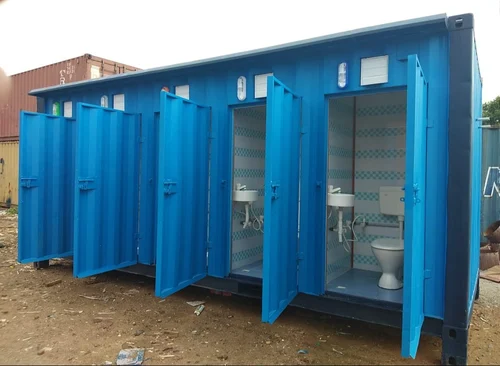
“When toilet systems are inadequate, damaged or broken, pollution spreads and deadly diseases spread.
“Human waste must be well contained and deposited into a hygienic toilet and stored in a sealed pit or tank, separated from human contact, and must be properly and safely disposed of when need be.’’
Similarly, UNICEF Chief of Water, Sanitation and Hygiene (WASH) Jane Bevan affirms that the continued practice of open defecation and poor hygiene is detrimental to the health of millions of people.
She appeals to governments, partners, and the private sector to join in making Nigeria open defecation-free.
Dr Oladoyin Odubanjo, a public health physician, currently the Executive Secretary of the Nigerian Academy of Science (NAS), says the importance of access to clean toilets is a basic human right.
The absence of it has public health risks.
He suggests that community-driven initiatives can complement government strategies to eradicate open defecation, with individuals raising issues and demanding toilets in new buildings and developments.
“The lack of it puts the lives of everybody at risk.’’
Odubanjo advises that the government’s strategy for stopping open defecation should start by driving it at the community level.
In summary, every Nigerian should have access to safe toilets and sanitation/hygiene facilities in cities, small towns, and rural communities.
All houses, places of worship, schools, markets, shops, offices, recreational centres, motor parks, private and public places, must have safe and accessible functional toilets.
This is important because though it is the poor who unfortunately do not have toilets, everybody suffers from the polluting effects of open defecation and not having access to safe and clean toilets.
Moreover, the lack of sanitation is a reliable indicator of how the poorest in a country are faring.
As such, everyone, all stakeholders, should have a sense of urgency to ensure that safe and functional toilets are available and accessible.
(NAN features)


